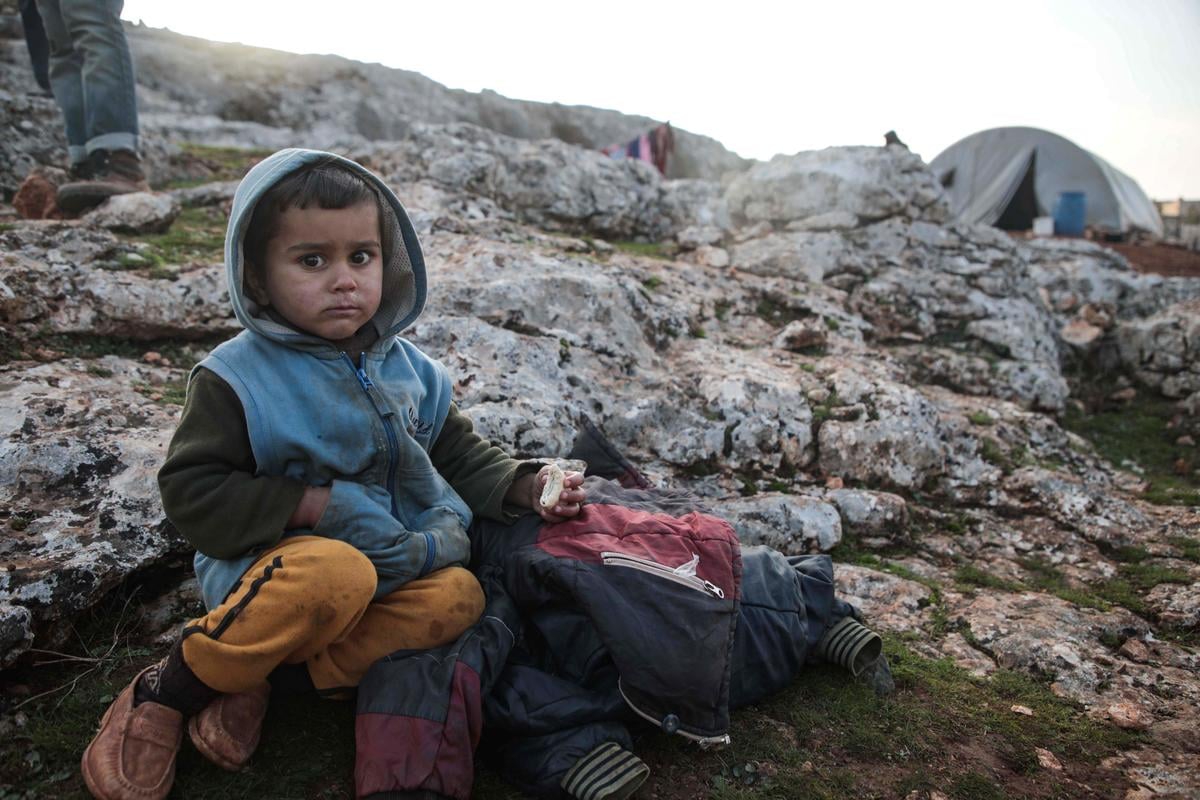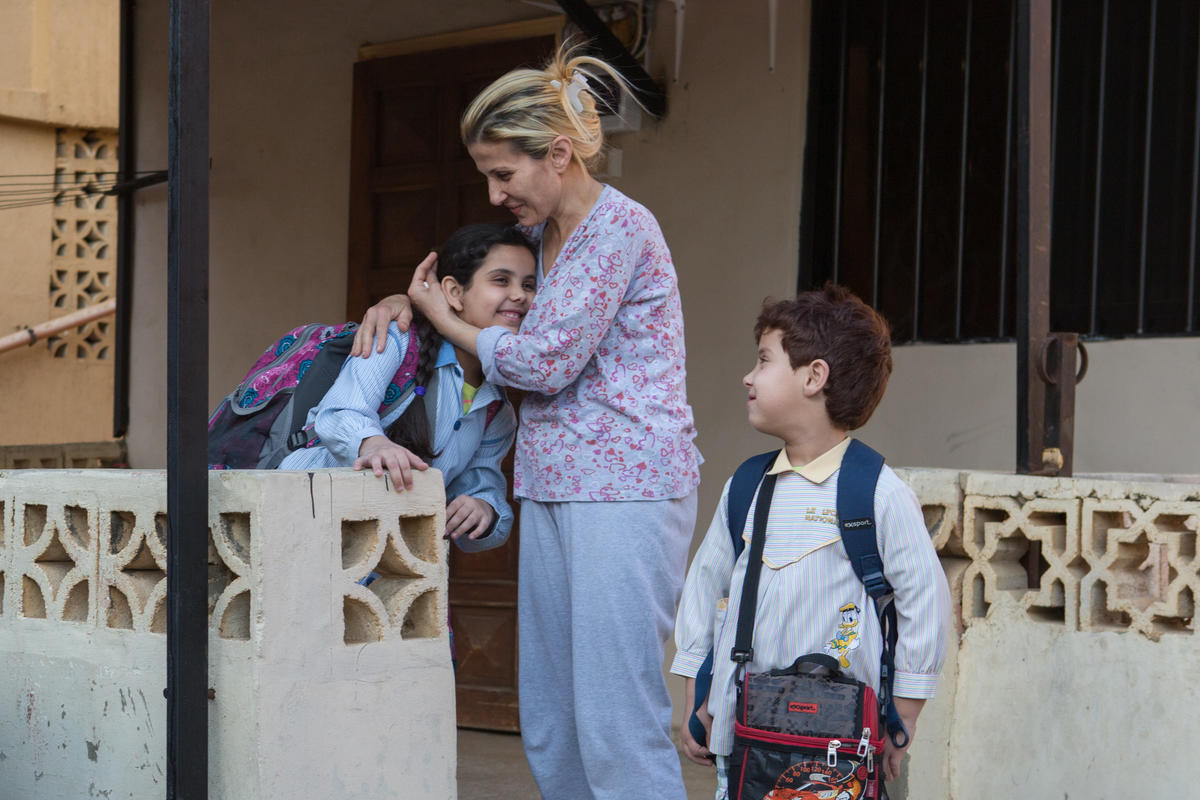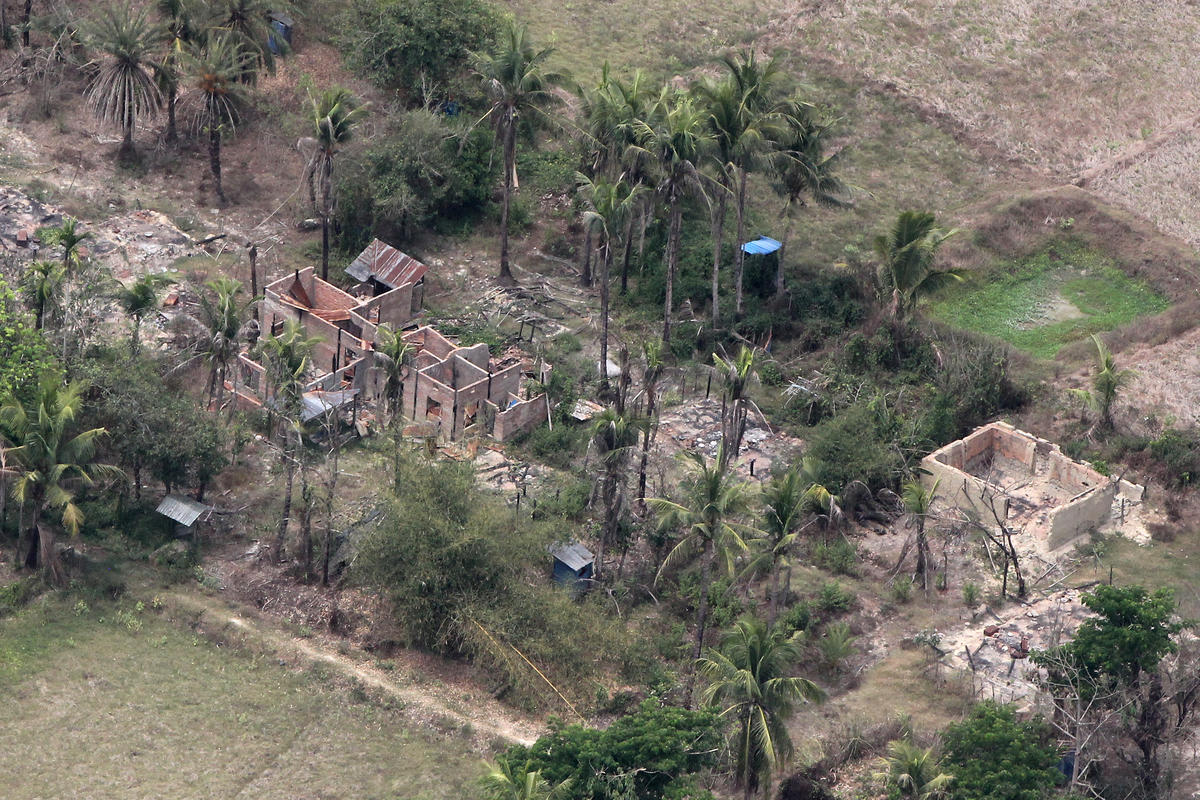UNHCR concerned about rising violence in Iraq and inadequate humanitarian response
UNHCR concerned about rising violence in Iraq and inadequate humanitarian response

GENEVA, November 3 (UNHCR) - The UNHCR on Friday said it was increasingly alarmed over the incessant violence in Iraq and distressed about the lack of an international humanitarian response to deal with the massive numbers of people being displaced in the troubled Middle East country.
The refugee agency had aired its grave concerns during a briefing with donors in Geneva on Thursday, chief UNHCR spokesman Ron Redmond told reporters.
"UNHCR officials who just returned from the region warned that we are now facing an even larger humanitarian crisis than we had initially prepared for in 2002-03. Yet we're sorely lacking in funds to cope with the growing numbers of displaced and increasingly desperate Iraqis needing help both within and outside their country," Redmond said.
"As part of our preparations for a possible exodus of up to 600,000 refugees in 2002-03, for example, we had originally set a budget of US$154 million. Today, we are faced with hundreds of thousands more displaced than we had planned for then, but have a US$29 million budget that is only about 60 percent funded," he added. "We have already had to suspend a number of crucial activities."
Redmond said that while international donors had provided billions of dollars in funding for recovery and development programmes for Iraq, humanitarian programmes in Iraq and neighbouring states remained neglected. "We're now calling for a renewed focus on the humanitarian crisis in the region," he stressed.
The spokesman noted that the situation since the 2003 toppling of the Saddam Hussein regime had not stabilised as forecast and, instead, the violence had continued and the number of displaced risen.
"This has necessitated a reassessment of UNHCR's work and our priorities throughout the region - from assisting returns and aiding some 50,000 non-Iraqi refugees in Iraq, to providing more help to the tens of thousands who are fleeing every month. That reassessment is continuing and elements of it were shared in yesterday's briefing to donors," Redmond said.
UNHCR officials just back from the region estimate there are at least 1.6 million Iraqis displaced internally, and up to 1.8 million in neighbouring states. Many were displaced prior to 2003, but an increasing number are fleeing now.
Of the internally displaced, an estimated 425,000 Iraqis have fled their homes for other areas inside Iraq this year alone - largely due to sectarian violence sparked by the bombing of an important Shia mosque in February. And internal displacement is continuing at a rate of some 50,000 a month.
This displacement is presenting an enormous humanitarian challenge and extreme hardship for both the displaced and the Iraqi families trying to help them in host communities.
The enormous scale of the needs, the continuing violence and the difficulties in reaching the displaced make it a problem that is practically beyond the capacity of humanitarian agencies, including UNHCR. "And the longer it goes on, the more difficult it gets as both the internally displaced and their host communities in Iraq run out of resources," Redmond said.
Many of those outside the country fled over the past decade or more, but now some 2,000 a day are arriving in Syria, and an estimated 1,000 a day in Jordan. Most of them do not register with UNHCR.
Donors were told that the population movements showed no sign of abating and that the needs of those who have fled are dramatic and to a large extent unmet. Some 50,000 non-Iraqi refugees - mostly Palestinians, Syrians and Iranians - under UNHCR's care inside Iraq are also in an increasingly dire situation.
"We fear hundreds of thousands more Iraqis who have waited to see an improvement in the situation are now teetering on the brink of displacement. Many urban professionals have already fled. Doctors, teachers, computer technicians and other skilled people crucial to the country's stability and well-being are leaving," Redmond said.
UNHCR thanked the neighbouring states which have received Iraqis and appealed to them to continue extending hospitality and temporary protection - and for countries beyond the immediate region to help carry this burden.
It was also pointed out to donors that thousands of Iraqis are now moving beyond the region, including to Europe. Of some 40 nationalities seeking asylum in European countries in the first half of 2006, Iraqis ranked first. Statistics received from 36 industrialised countries for the first six months of 2006 showed a 50 percent increase in Iraqi asylum claims over the same period a year ago.








